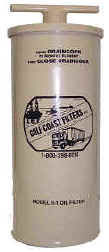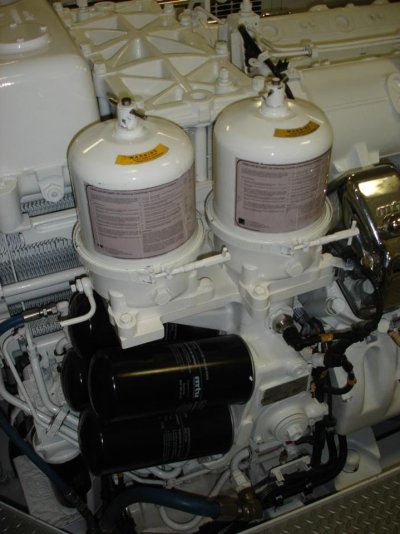A PO installed a pair of Gulf Coast bypass lube oil filters:

I've never run these, but I figure extra filtering of lube oil is a good thing, right?
The time has come to change the engine oil (or maybe not, I have no record of when it was last done.) At any rate, I'm going to.
From what I've read in the manual I downloaded, you just replace the paper towel roll inside. Is that all there is to it?
I'd also be interested to hear if anyone has a strong opinion against using these.

I've never run these, but I figure extra filtering of lube oil is a good thing, right?
The time has come to change the engine oil (or maybe not, I have no record of when it was last done.) At any rate, I'm going to.
From what I've read in the manual I downloaded, you just replace the paper towel roll inside. Is that all there is to it?
I'd also be interested to hear if anyone has a strong opinion against using these.


